Hey there! If you're navigating the often complex world of vendor contracts, you're not alone. Understanding the terms can feel overwhelming, but breaking them down can make all the difference in fostering better business relationships. So, if you're curious about how to decode these agreements and protect your interests, keep reading to discover essential insights that'll empower your negotiation skills!
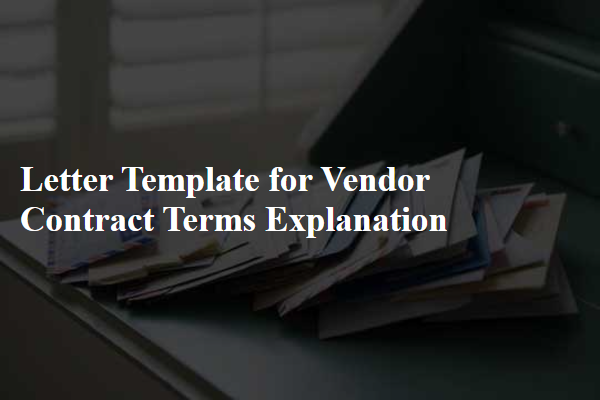
Contract Scope and Deliverables
The contract scope outlines the specific services and products to be provided by the vendor, including detailed descriptions of deliverables such as timelines, quality standards, and quantities. For example, in a software development agreement, deliverables might involve the delivery of a fully functional application with specific features, including user authentication and data encryption, by a predetermined date, such as December 1, 2023. Additionally, the scope may specify ongoing support and maintenance services for a duration of one year following the initial delivery. Clear definitions of deliverables ensure that both parties have aligned expectations, facilitating smoother project management and communication. Other key elements include milestones for delivery, acceptable performance metrics, and consequences for non-compliance with the stipulated terms.
Payment Terms and Schedules
Payment terms and schedules are critical components of vendor contracts, outlining expectations regarding financial transactions between parties. Common structures include net 30, indicating payment is due within 30 days after receipt of goods or services. Alternatively, installments may be negotiated, such as quarterly payments over a year-long contract, where both parties agree on specific amounts due on predetermined dates. Consideration of early payment discounts, often ranging from 1-5%, can incentivize timely transactions. Default payment clauses detail penalties for late payments, which may include interest rates escalating to 1.5% per month. Establishing clear communication channels regarding invoicing procedures streamlines payment processing, ensuring both parties maintain a positive and ongoing business relationship.
Confidentiality and Data Protection
Confidentiality and data protection play crucial roles in vendor contract terms, ensuring sensitive information remains secure. Confidentiality clauses dictate that vendors, such as XYZ Corporation, must not disclose proprietary information to third parties. Data protection provisions align with regulations like the General Data Protection Regulation (GDPR), which mandates stringent handling of personal data. For example, the contract may specify that vendors must implement encryption measures for stored data and limit access to authorized personnel only. Breach of these confidentiality and data protection obligations can result in financial penalties and legal consequences for the vendor, protecting both parties involved.
Liability and Indemnification
Liability and indemnification clauses in vendor contracts outline the responsibilities of each party in the event of a breach or claim. For instance, a liability clause may specify that the vendor is financially responsible for any damages resulting from negligence, which could include monetary compensation in legal disputes. This can cover issues like data breaches that affect sensitive customer information or property damage during service provision. Indemnification requires the vendor to protect the contracting party against any losses or legal claims that arise from the vendor's actions, such as failing to comply with regulations or causing injury while performing duties. Clear definitions and limits regarding liability and indemnification help mitigate risks for both parties involved in a commercial transaction.
Termination and Renewal Conditions
Termination and renewal conditions in vendor contracts outline the specific criteria and processes for ending or extending the agreement between parties. Termination can occur for various reasons, including breach of contract, failure to deliver goods or services on time, or insolvency of one party. Typically, notice periods ranging from 30 to 90 days must be given for termination. Renewal conditions often specify automatic renewal clauses, requiring written notice from one or both parties to avoid extension. Additionally, vendors and clients may agree upon performance metrics or deliverables that must be met prior to renewal discussions. Understanding these terms ensures clear expectations and responsibilities, fostering a smoother working relationship.

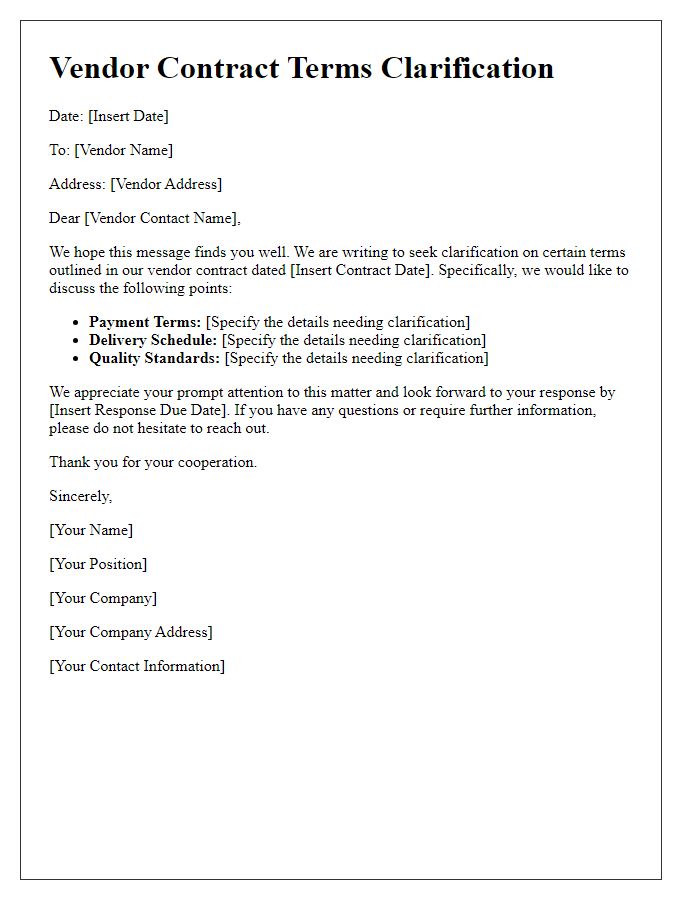
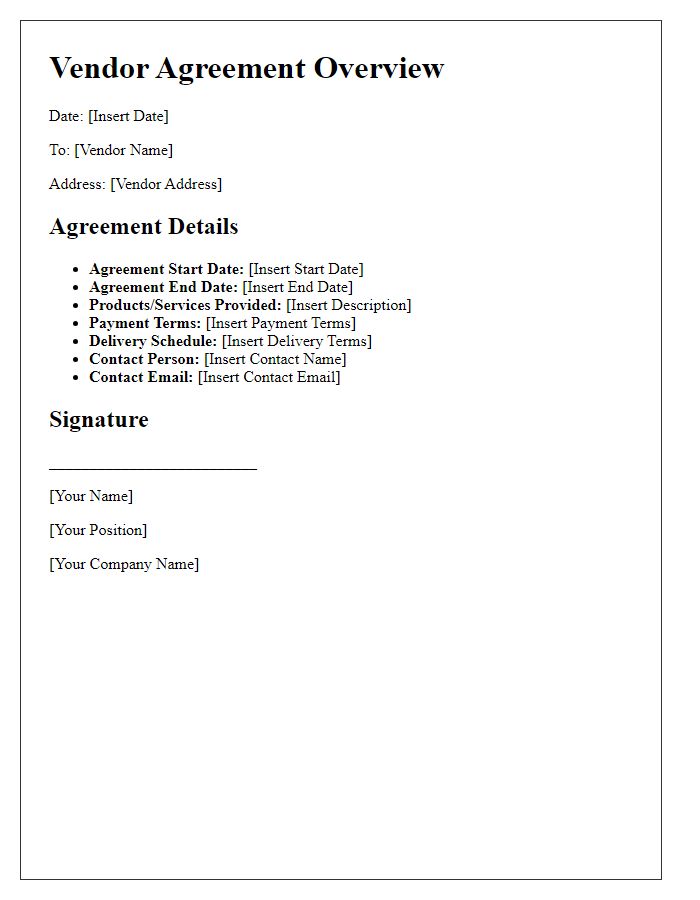
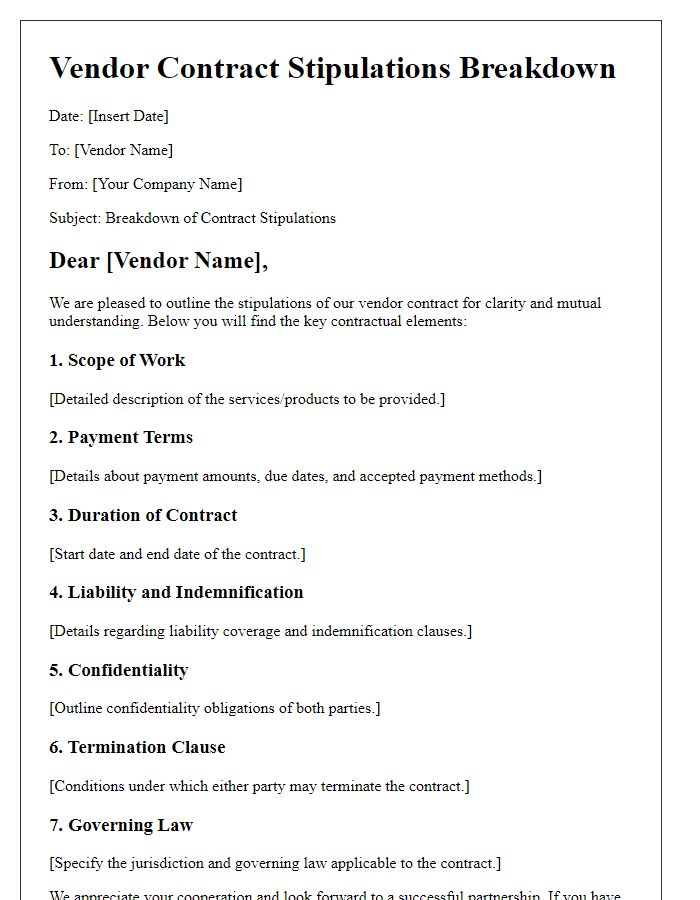
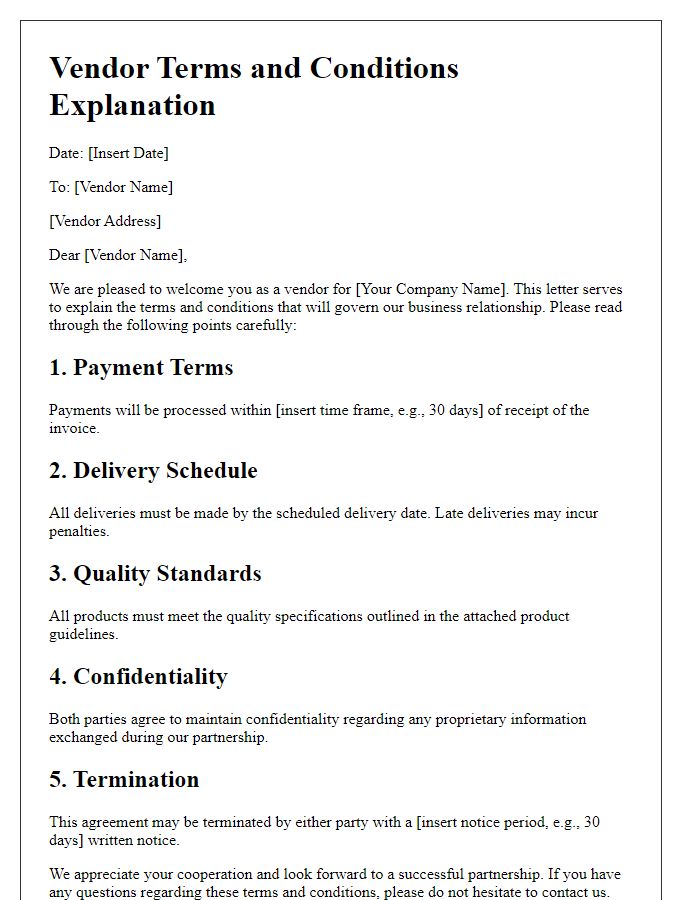
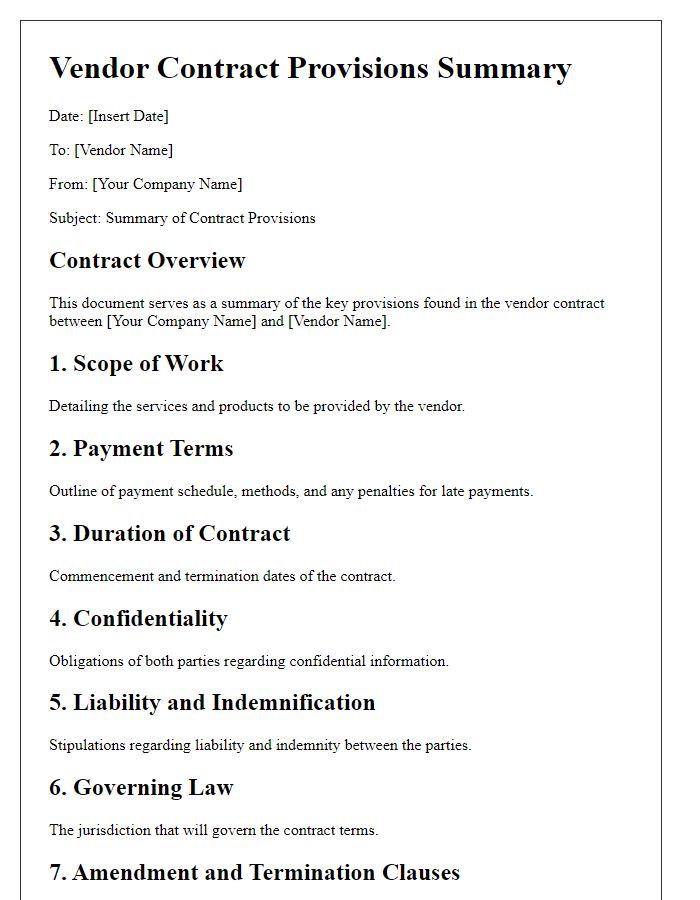
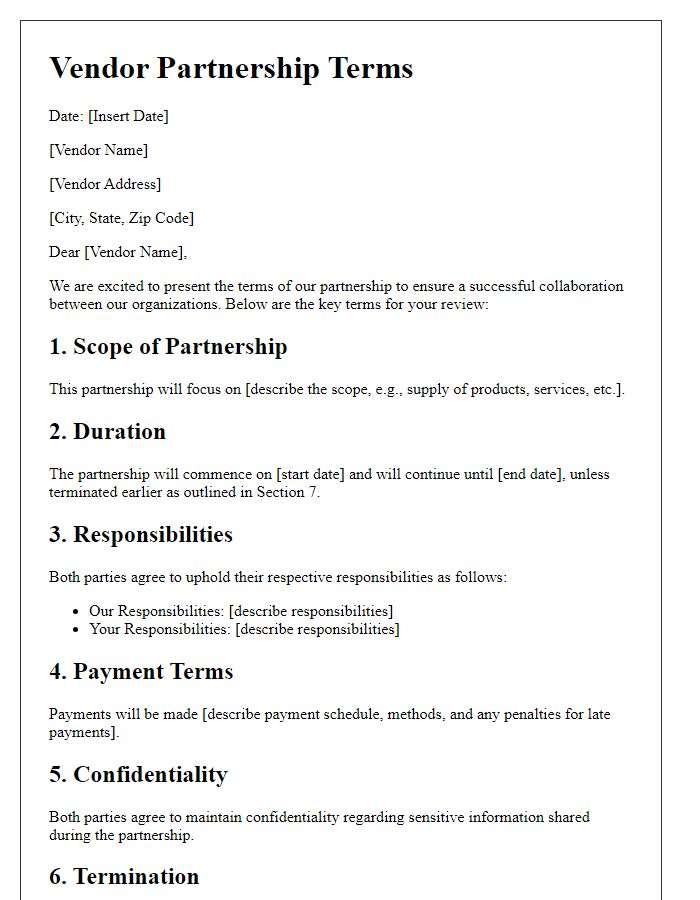
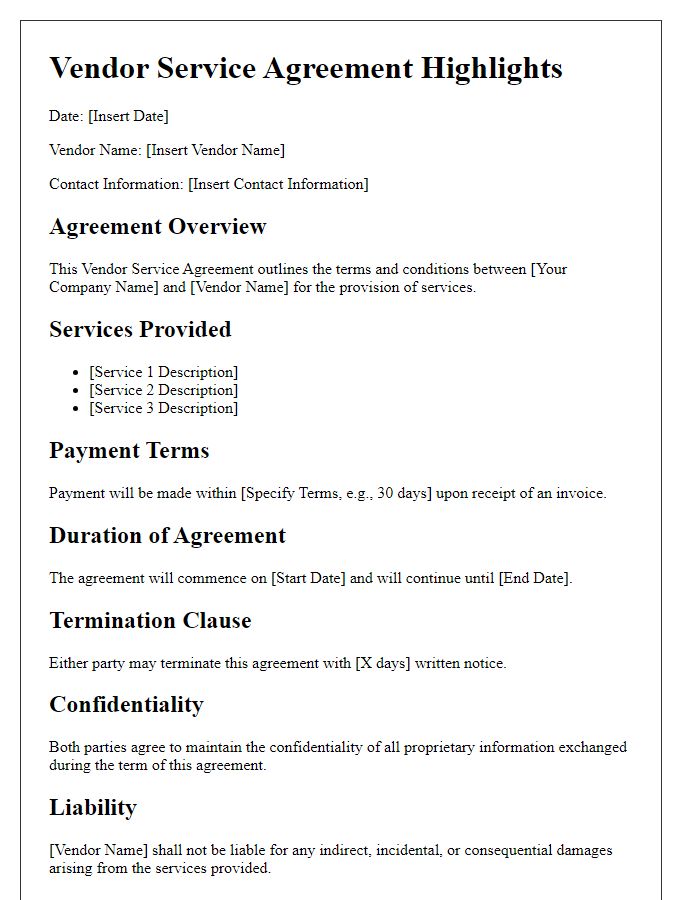
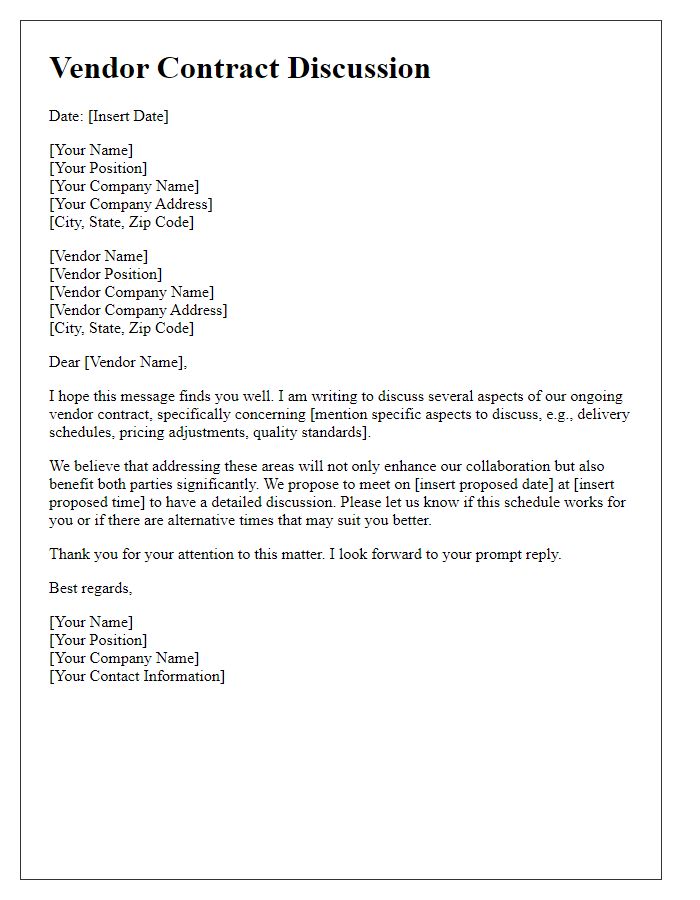
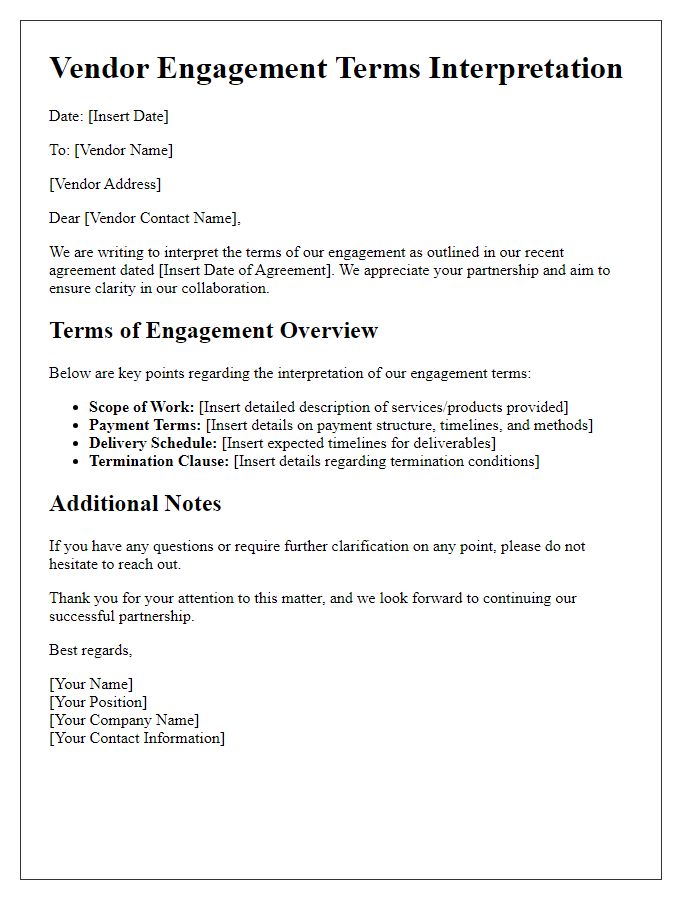
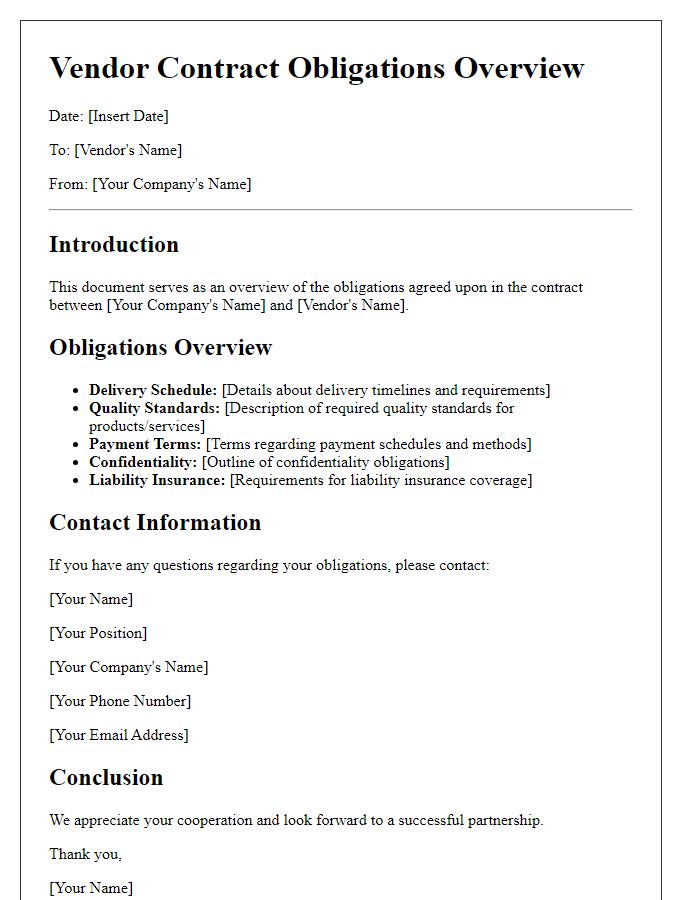

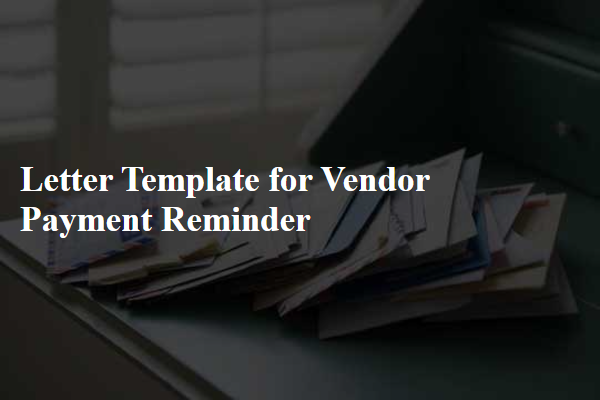
Comments